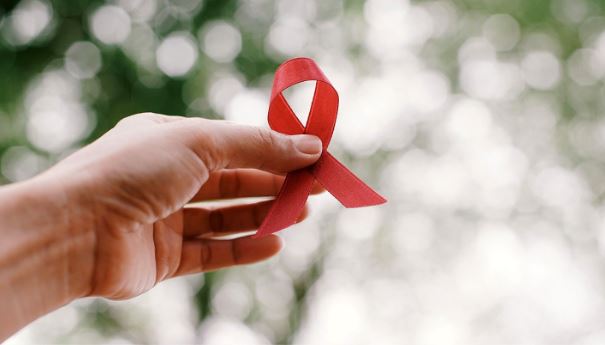Lifestyle
Did you know chronic neck pain could be a symptom of HIV? Here are the early symptoms!

Symptoms of HIV can vary between individuals, the first signs of the infection generally appear within the first 1-2 months.
Many, but not all, people will experience severe flu-like symptoms which is your body’s natural response to the virus. This is called the ‘seroconversion’ period.
It’s during this time that it’s crucial to identify if HIV is the cause, as your viral load is very high which greatly increases the risk of passing it on – and the only way to know for sure is by getting tested.
Here are some of the most common, indicating early-stage HIV infection:
1. Fever
One of the first signs of an HIV infection can be a mild fever, up to about 102F/39C. At this point the virus is moving into the blood stream and starting to replicate in large numbers. You are highly contagious in the early stages of an HIV infection because the undetected, unchecked virus is making millions of copies of itself as it destroys cells your immune system uses to fight disease.
2. Swollen lymph nodes
Lymph nodes often become inflamed, or swollen, when the body is trying to fight an HIV infection. Major lymph nodes are located in the armpit, groin, and neck areas. Often, lymph nodes in the neck are involved, become tender and may be called “swollen glands.”
They’re shaped like beans and measure no more than 2.5 centimetres long. Your lymph nodes are responsible for filtering lymph and producing mature immune cells. Swollen lymph nodes may also be the first signs of an infection, including HIV.
3. Sore throat
People living with HIV may have a chronic or recurring sore throat, and it’s not uncommon for people living with HIV and AIDS to develop thrush, an opportunistic, secondary infection. Candida is the fungus that causes thrush; flourishes when the immune system is compromised; is found in the mouth and throat; and contributes to difficult swallowing.
4. Rash
If a rash can’t be easily explained or treated and you have participated in high-risk behaviour, you should consider an HIV test. Rashes can occur anywhere on the skin but are often found on the trunk of the body. These rashes may or may not itch.
5. Fatigue
The inflammatory response generated by the besieged immune system can also cause tiredness, general listlessness and a lack of energy to do tasks you may consider normal or routine. Fatigue can be debilitating and occurs as both an early and later sign of HIV infection and AIDS.
6. Muscle and joint aches and pains
Other common symptoms of infection include muscle ache and joint or body pain, rheumatic disease. These can be caused by the HIV infection alone or by other viruses or bacteria, and inflammation often accompanies.
7. Diarrhea, vomiting and nausea
Many people with an early HIV infection develop nausea, vomiting, diarrhoea, and lack of appetite. This can be caused by fungal, bacterial, viral and parasitic infections, which overwhelm an already-compromised immune system. In some cases, these symptoms can also be a side effect to HIV medication.










